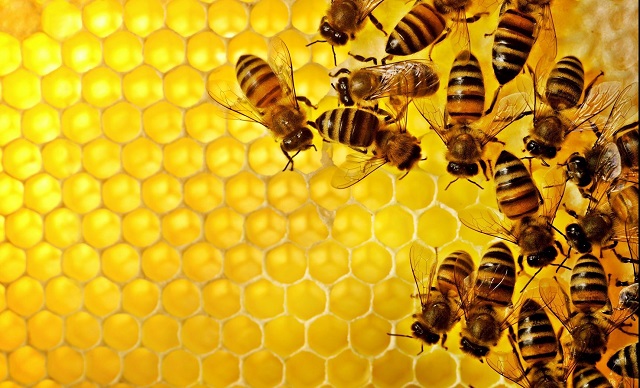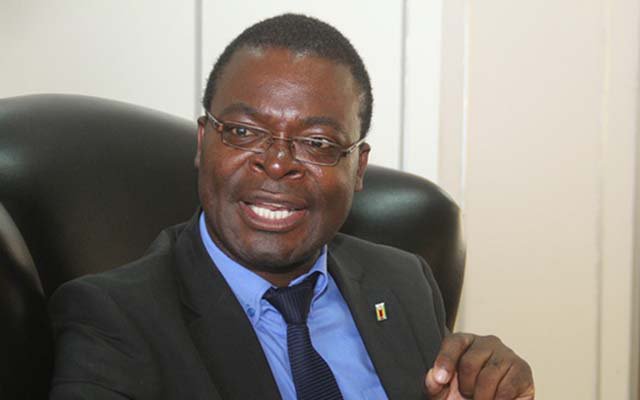Zimbabwe marks World Bee Day

Pamenus Tuso
Zimbabwe on Saturday commemorated the belated United Nations (UN) World Bee Day amid rapid decreasing population of the pollinators in the country as well as the world due to unfriendly environments.
The UN general assembly declared May 20 as World Bee Day in honour of Slovenian national, Anton Jansa, a pioneer of modern bee keeping whose birthday also falls on the same day.
Every year on this day, the attention of the global public will be drawn to the importance of preserving bees and other pollinators.
Worldwide, it is estimated that half of the pollinators of tropical plants are bees. Despite playing such a critical role to the universe, the insects’ importance remains overlooked not only in Zimbabwe but also the world over.
As a way of trying to remind and sensitise members of the public and policy makers on the importance of bees to humanity, the Matabeleland Beekeepers’ Association in conjunction with the Zimbabwe Apiculture Platform held the belated National Bee Day commemorations in Bulawayo at a local hotel.
The celebrations, which focused mainly on the preservation and protection of bees started with an awareness march through the city.
The organisers of the event also held a prose and art competition for school children as part of the awareness campaign.
“We held our belated World Bee Day celebrations in Bulawayo on Saturday. Because we believe in catching them young, we invited school children to take part in the celebrations so that they appreciate the importance of bees in our lives,” said Mr Welcome Bhila, secretary of the Matabeleland Beekeepers’ Association.
Mr Bhila, who is also the secretary of the Zimbabwe Apiculture Platform, bemoaned the state of the bee keeping business and culture in the country.
“Modern bee keeping is still at its infancy in the country but we’re still trying to make sure that we get there and meet international standards. We’re still practising a lot of traditional bee keeping methods mainly in Binga, some parts of Nkayi, Matopos and Lupane,” he said.
Mr Bhila said one of their partners in bee keeping programmes will soon roll out a modern technology bee keeping training programme. The programme will target mainly communal and resettlement areas.
Mr Bhila, who is also the director of Bees Honey Company, bemoaned lack of funding for bee keeping business activities.
“Most financial institutions are shunning funding for bee keeping farming. Bee keeping is one of the most lucrative ventures that one can go into considering the amount of resources and labour involved. Pollen and trees are free. There’s no reason why one can’t fund such an activity,” he said.
Mr Bhila also cited uncontrolled use of pesticides as well as the public’s general lack of information on the importance of bees as some of the factors threatening the survival of bees in some areas in Zimbabwe.
He also urged the Government to come up with a clear and holistic bee policy.
“The Government should come up with a policy which makes it mandatory for every homestead to have a bee hive. Bees provide numerous benefits to the natural environment and have a critical role in the ecosystem. The insects maintain biodiversity by pollinating numerous plant species whose fertilisation requires an obligatory pollinator,” he added.
Speaking at the commemorations, Ms Jacqui Gowe, the chairperson of the Zimbabwe Apiculture Platform said her organisation is lobbying Government to support the bee keeping industry.
“At the moment, we’re lobbying Government to see if they can embrace Command Apiculture so that we can increase honey production in the country. We’re also lobbying Government to use bees as pollinators because our crops are failing not because we don’t have the right seed or chemicals but because we’re no longer using bee pollination as we used to do 30 years ago. So we need to re-establish our crop pollination policy and services that we used to have as a country,” said Ms Gowe, who is affectionately known as “Queen Bee” for her passion for bees.
Ms Gowe said despite bee farming being lucrative and less labour and capital intensive, most farmers especially those in rural areas cannot access funding to start bee keeping businesses.
A kilogramme of first grade honey costs about $2,50.
“Funding has been the biggest challenge for farmers who want to start bee keeping. A lot of farmers are facing challenges in securing inputs which are very cheap in terms of revenue. If a farmer has to start with say five hives, he or she needs an overage of $300 which is repayable within a year but most rural farmers can’t access funding to that tune,” said Ms Gowe who also runs a thriving honey company.
She pointed out that the market for the honey business is huge in the country.
Ms Gowe revealed that recently, the European Union (EU) placed an order of 40 metric tonnes of honey but she failed to individually meet the order.
“As bee keepers, we need to mobilise each other and do proper and professional honey production. That’s the only way we can meet both local and foreign demand,” she said.
Although officials do not have exact statistics on the extent and impact of land degradation and uncontrolled pesticides on bees and honey production in Zimbabwe, there is an observation that the sector has been affected.
Changing weather patterns have also affected the sector.
“A number of people have withdrawn from producing honey or in some cases it’s just a dormant system. These are the things which we’ve encountered. For example, in Nkayi we used to have youth projects that were supported by the Ministry of Youth. The youths produced everything but there was no market for the honey and as a result the projects folded,” said Mr Admore Chikowa, Matabeleland North Provincial Livestock and Development officer in the Ministry of Agriculture, Mechanisation and Irrigation Development.
Mr Chikowa said as a way of conserving bees and promoting beekeeping initiatives, stakeholders including Government should identify areas which are ideal for bee habitation and survival and strengthen environmental preservation programmes in those areas.
“Areas like Tsholotsho are conducive for beekeeping. Bees don’t just want to go to any tree or any area. We need researchers to inform communities on plants which are favoured mostly by bees. Once we have identified these plants, it’s easier to mobilise communities to plant these trees and manage their environment effectively,” said Mr Chikowa.











Comments